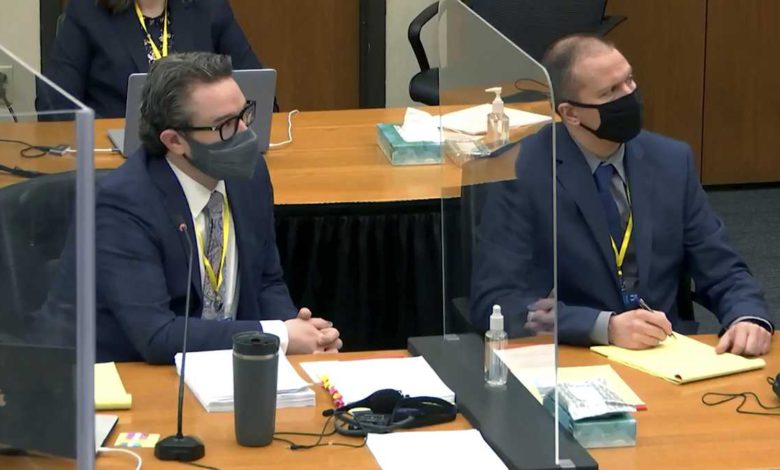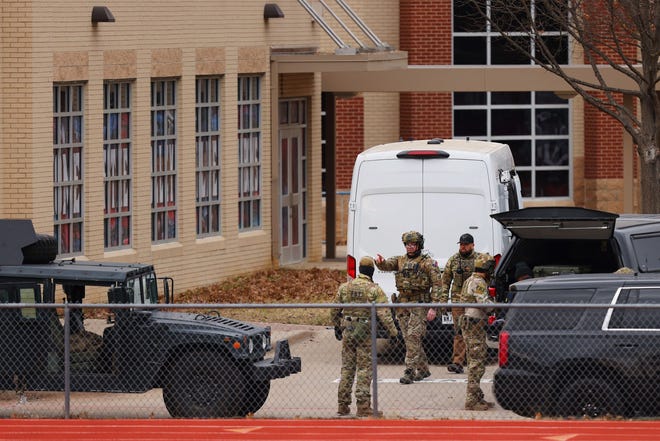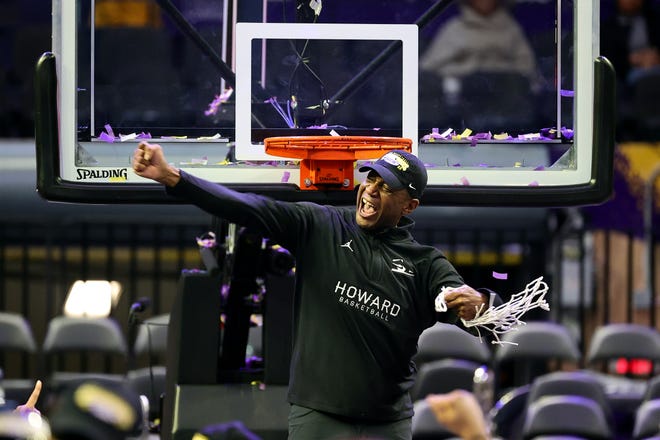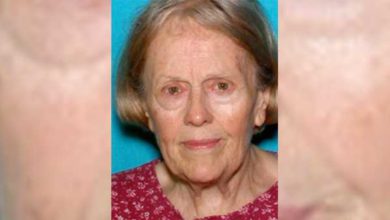

The jurors selected so far in Derek Chauvin's trial in the death of George Floyd are unnamed and unseen on camera, but we do know basic details about them.As of Thursday, five men and five women have been chosen to serve on the jury during the trial in Minneapolis. Of the nine jurors, five are white, three are Black and two are mixed race, according to how the court says the jurors identified themselves.The jury selection process, which began March 9 at the Hennepin County Government Center, will continue until the court decides on 14 people — 12 jurors and two alternates, Hennepin County Court director of communications Spenser Bickett told CNN.Floyd, a 46-year-old Black man, died on May 25, 2020, after Chauvin, a former Minneapolis Police officer who is white, placed his knee on Floyd's neck for an extended period while Floyd pleaded, "I can't breathe." His final moments were captured on video, and his death led to widespread protests against police brutality and racism under the banner Black Lives Matter as well as incidents of unrest and looting.Chauvin has pleaded not guilty to second-degree unintentional murder and second-degree manslaughter charges. He has also pleaded not guilty to third-degree murder, which was reinstated in the case on March 11.Opening statements are expected to start no earlier than March 29, followed by testimony that could take about four weeks.Who was selectedThe jurors all come from Hennepin County, which is demographically about 74% white and 14% Black, according to census data.The prospective jurors have previously completed a 16-page questionnaire that asked for their personal thoughts on Black Lives Matter, policing and other topics. In court, each person is sworn in and then questioned one-by-one in a process known as voir dire. The juror's name, address and other information are kept anonymous.Eric Nelson is questioning the prospective jurors for the defense, while Steve Schleicher is questioning them for the prosecution. Judge Peter Cahill is presiding over the trial.Seven jurors were selected in the first four days of jury selection last week, although two of these were later excused. Two jurors were selected on Monday.The first juror selected is a white man in his 20s or 30s who works as a chemist and said he has an analytical mind.The second juror is a woman of color who appears to be in her 20s or 30s, according to a pool reporter's observations in court. She said she was "super excited" about getting the jury questionnaire form.The third juror selected is a white man in his 30s who works as an auditor.The fourth juror selected is a Black man in his 30s or 40s who moved to the U.S. 14 years ago and works in information technology. He said that he had a "somewhat negative" opinion of Chauvin, that he strongly disagreed with defunding the police and that police make him feel safe.The fifth juror is a white woman in her 50s, according to the court. She said she has a "somewhat negative" impression of Chauvin, and believes there are biases against African Americans but not everyone in the system is bad. She said she felt empathy for Floyd as well as the officers because "at the end of the day I'm sure that the intention was not there for this to happen."The sixth juror chosen is a Black man in his 30s, according to the court, who said he had very favorable views of Black Lives Matter. He also said he thought Chauvin had "no intention" of harming anyone, but he said he could put that opinion aside in this case.The seventh juror selected is a white woman in her 50s, according to the court. She had a "somewhat negative" impression of Chauvin and wrote she "got the impression he didn't care about" Floyd.The eighth juror selected is a Black man in his 40s, according to the court.The ninth juror is a woman of multiple/mixed race in her 40s who said she has a "somewhat negative" opinion of Chauvin, but feels safe because of police in her neighborhood, the court said. The court initially incorrectly stated her race as white, but she identifies as multiple/mixed race.The 10th juror is a white woman in her 50s who works as a nurse. She said police in her community make her feel safe, but she noted Black and minority people are not always treated fairly in the criminal justice system.Who was excusedIf the defense or prosecution believes a person cannot be impartial in the case, they can ask the court to dismiss the person for cause. Each side has unlimited challenges for cause.Prosecutors and defense attorneys can also move to dismiss prospective jurors without cause, using what's called a peremptory challenge. Chauvin's team is allowed 18 of these challenges and the prosecution has 10. They initially were granted fewer, but Judge Cahill allowed both sides more in response to pre-trial publicity.These peremptory challenges can themselves be challenged, though, if they are based on race, ethnicity or sex — known as a Batson challenge.The defense has used 12 peremptory strikes and the prosecution has used six as of Thursday.The defense has generally used its strikes on people who expressed negative views of Chauvin and positive views of Black Lives Matter, while the prosecution has generally used its strikes on white people who expressed support for police.Two people, a Hispanic man and a white man, who had initially been selected to be on the jury were excused on Wednesday after they told the court that mid-trial news of Minneapolis's $27 million settlement with Floyd's estate affected their ability to be impartial.
The jurors selected so far in Derek Chauvin's trial in the death of George Floyd are unnamed and unseen on camera, but we do know basic details about them.
As of Thursday, five men and five women have been chosen to serve on the jury during the trial in Minneapolis. Of the nine jurors, five are white, three are Black and two are mixed race, according to how the court says the jurors identified themselves.
The jury selection process, which began March 9 at the Hennepin County Government Center, will continue until the court decides on 14 people — 12 jurors and two alternates, Hennepin County Court director of communications Spenser Bickett told CNN.
Floyd, a 46-year-old Black man, died on May 25, 2020, after Chauvin, a former Minneapolis Police officer who is white, placed his knee on Floyd's neck for an extended period while Floyd pleaded, "I can't breathe." His final moments were captured on video, and his death led to widespread protests against police brutality and racism under the banner Black Lives Matter as well as incidents of unrest and looting.
Chauvin has pleaded not guilty to second-degree unintentional murder and second-degree manslaughter charges. He has also pleaded not guilty to third-degree murder, which was reinstated in the case on March 11.
Opening statements are expected to start no earlier than March 29, followed by testimony that could take about four weeks.
Who was selected
The jurors all come from Hennepin County, which is demographically about 74% white and 14% Black, according to census data.
The prospective jurors have previously completed a 16-page questionnaire that asked for their personal thoughts on Black Lives Matter, policing and other topics. In court, each person is sworn in and then questioned one-by-one in a process known as voir dire. The juror's name, address and other information are kept anonymous.
Eric Nelson is questioning the prospective jurors for the defense, while Steve Schleicher is questioning them for the prosecution. Judge Peter Cahill is presiding over the trial.
Seven jurors were selected in the first four days of jury selection last week, although two of these were later excused. Two jurors were selected on Monday.
The first juror selected is a white man in his 20s or 30s who works as a chemist and said he has an analytical mind.
The second juror is a woman of color who appears to be in her 20s or 30s, according to a pool reporter's observations in court. She said she was "super excited" about getting the jury questionnaire form.
The third juror selected is a white man in his 30s who works as an auditor.
The fourth juror selected is a Black man in his 30s or 40s who moved to the U.S. 14 years ago and works in information technology. He said that he had a "somewhat negative" opinion of Chauvin, that he strongly disagreed with defunding the police and that police make him feel safe.
The fifth juror is a white woman in her 50s, according to the court. She said she has a "somewhat negative" impression of Chauvin, and believes there are biases against African Americans but not everyone in the system is bad. She said she felt empathy for Floyd as well as the officers because "at the end of the day I'm sure that the intention was not there for this to happen."
The sixth juror chosen is a Black man in his 30s, according to the court, who said he had very favorable views of Black Lives Matter. He also said he thought Chauvin had "no intention" of harming anyone, but he said he could put that opinion aside in this case.
The seventh juror selected is a white woman in her 50s, according to the court. She had a "somewhat negative" impression of Chauvin and wrote she "got the impression he didn't care about" Floyd.
The eighth juror selected is a Black man in his 40s, according to the court.
The ninth juror is a woman of multiple/mixed race in her 40s who said she has a "somewhat negative" opinion of Chauvin, but feels safe because of police in her neighborhood, the court said. The court initially incorrectly stated her race as white, but she identifies as multiple/mixed race.
The 10th juror is a white woman in her 50s who works as a nurse. She said police in her community make her feel safe, but she noted Black and minority people are not always treated fairly in the criminal justice system.
Who was excused
If the defense or prosecution believes a person cannot be impartial in the case, they can ask the court to dismiss the person for cause. Each side has unlimited challenges for cause.
Prosecutors and defense attorneys can also move to dismiss prospective jurors without cause, using what's called a peremptory challenge. Chauvin's team is allowed 18 of these challenges and the prosecution has 10. They initially were granted fewer, but Judge Cahill allowed both sides more in response to pre-trial publicity.
These peremptory challenges can themselves be challenged, though, if they are based on race, ethnicity or sex — known as a Batson challenge.
The defense has used 12 peremptory strikes and the prosecution has used six as of Thursday.
The defense has generally used its strikes on people who expressed negative views of Chauvin and positive views of Black Lives Matter, while the prosecution has generally used its strikes on white people who expressed support for police.
Two people, a Hispanic man and a white man, who had initially been selected to be on the jury were excused on Wednesday after they told the court that mid-trial news of Minneapolis's $27 million settlement with Floyd's estate affected their ability to be impartial.
Source link









